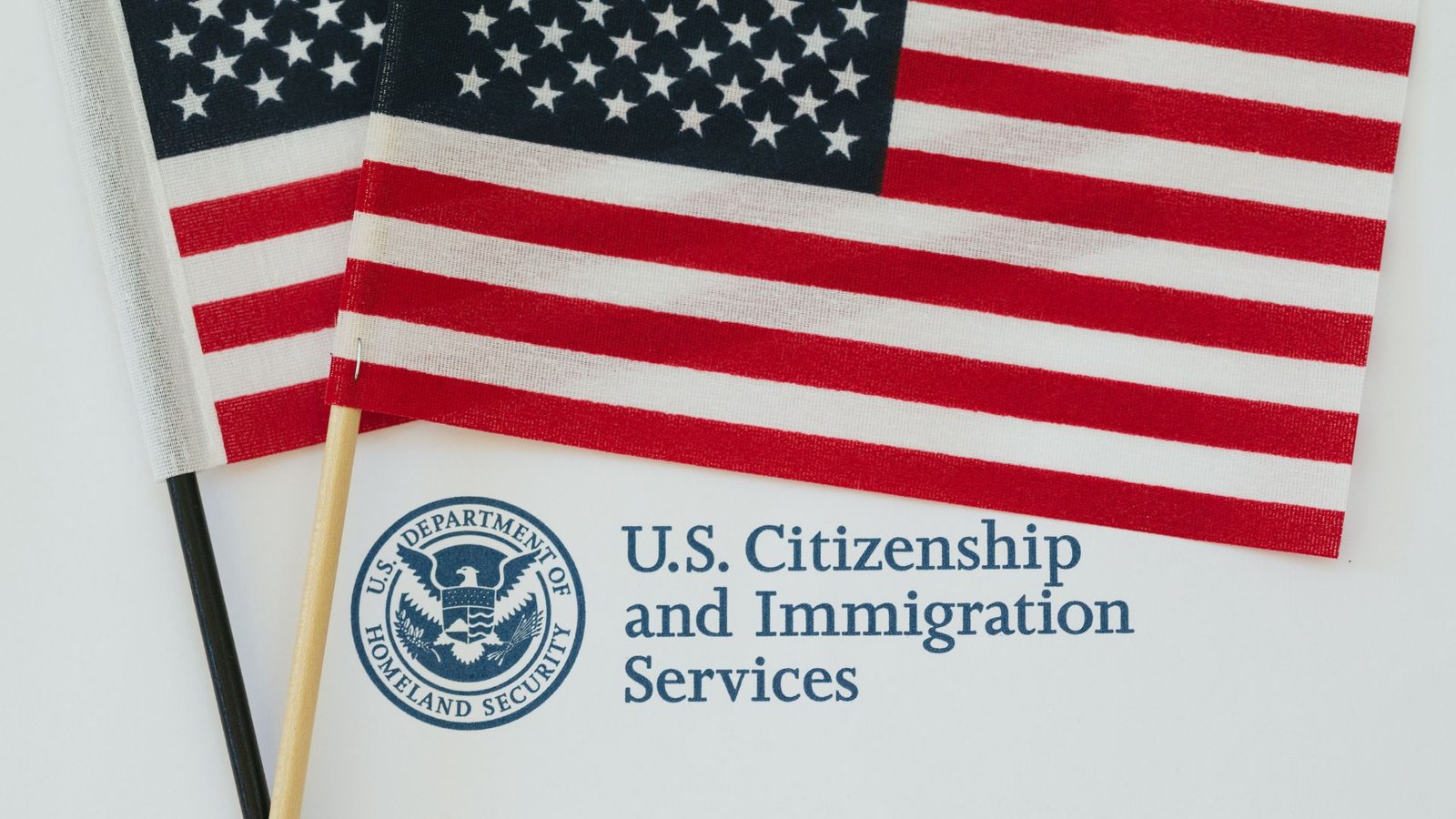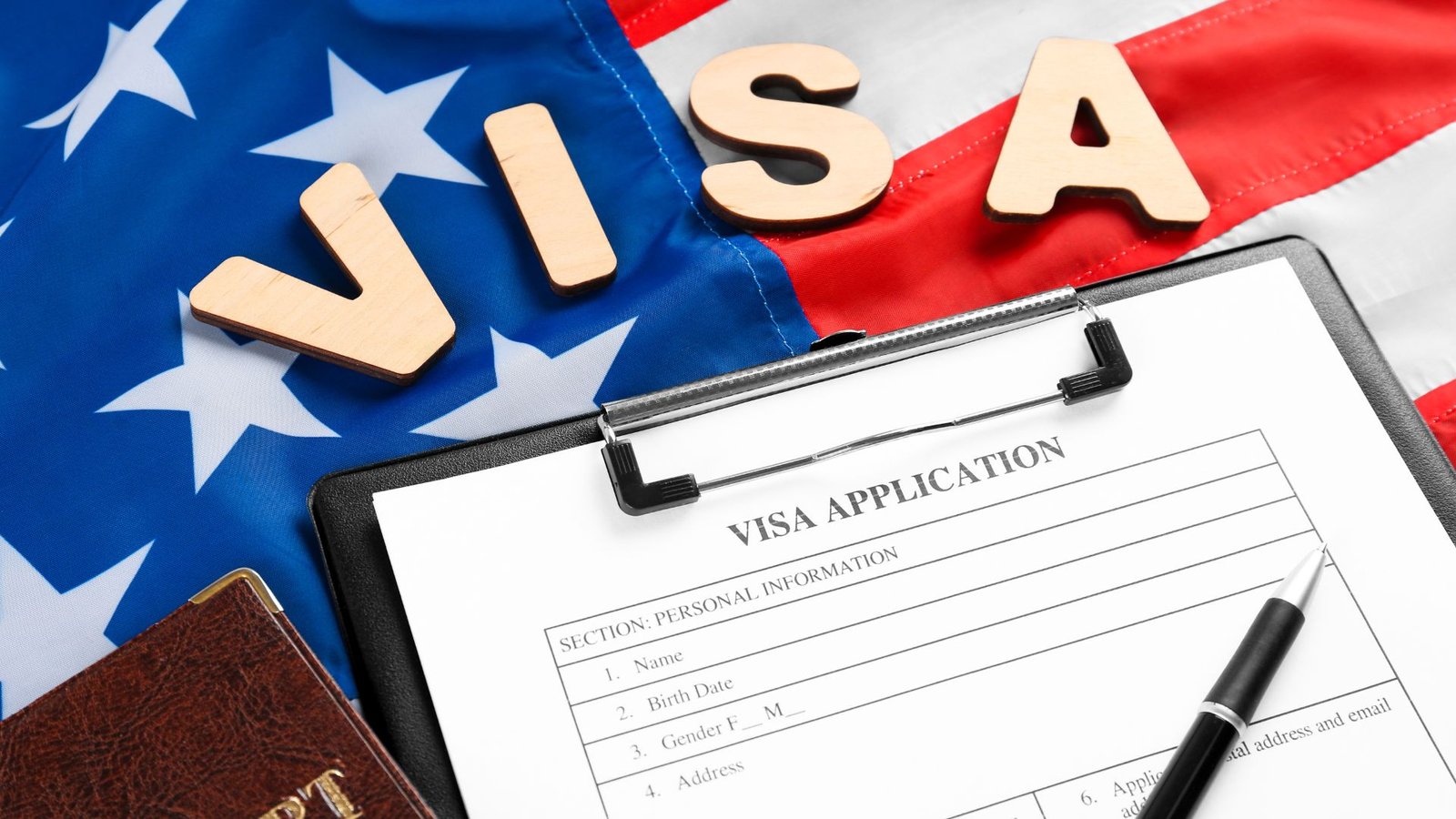On this page you will read detailed information about The Rights and Benefits of U.S. Citizenship.
As an American citizen, you have been granted certain inalienable rights and protections under the U.S. Constitution. Your citizenship provides you opportunities and benefits that are the envy of many around the world. In this article, we explore some of the key rights and benefits that come with being a citizen of the United States. From the right to vote and protections against unlawful search and seizure to access public benefits like Social Security and Medicare, U.S. citizenship offers both tangible and intangible advantages you may take for granted. Understanding these benefits can help you appreciate the value of your citizenship and inspire you to exercise your rights and responsibilities as an American.
What Does It Mean to Be a U.S. Citizen?
As a U.S. citizen, you have certain rights and benefits, as well as responsibilities. Citizenship signifies full membership in the U.S. political community as well as the opportunity to help shape its future.
Rights and Benefits
Some of the rights you are entitled to as a citizen include:
- The right to vote and participate in the U.S. political process. You can vote in federal elections and run for political office.
- Traveling with a U.S. passport. You have the right to leave and enter the U.S. freely and obtain visas to visit foreign countries.
- Receiving federal benefits like Social Security, Medicare, and unemployment compensation. Certain government programs are only available to citizens and nationals.
- Petitioning for close family members to immigrate to the U.S. Citizens can sponsor spouses, children, parents, and siblings for permanent residence.
- Not being deported. Natural born or naturalized citizens cannot be deported or removed from the U.S.
Responsibilities
In exchange for these rights and benefits, citizens also have responsibilities to the nation and each other:
- Obeying U.S. laws. U.S. citizens must follow all federal, state, and local laws or face legal consequences like fines, imprisonment, or both.
- Paying taxes. All citizens are required to report their income and pay taxes to the IRS each year. Failure to do so can result in penalties and interest charges.
- Serving on a jury. When called for jury duty, citizens must appear in court to participate in the jury selection process.
- Defending the nation. In times of war or national emergency, citizens may be called upon to serve in the armed forces to defend the U.S. and its interests.
In summary, U.S. citizenship is a privilege that comes with both rights and responsibilities. By understanding what each of these entails, you can fulfill your obligations as a citizen and enjoy the benefits of membership in American society.
In the previous post, we had shared information about Demystifying US Illegal Immigration Law: Key Insights and Implications for Individuals and Society, so read that post also.
The Application Process for U.S. Citizenship
To become a naturalized U.S. citizen, you must go through an application process administered by U.S. Citizenship and Immigration Services (USCIS). This multi-step process includes submitting various applications, providing documentation to confirm your eligibility, undergoing background checks, and attending an interview.
Filing Form N-400, Application for Naturalization
The first step to citizenship is filing Form N-400, Application for Naturalization. You must meet certain requirements to be eligible to apply, including being a lawful permanent resident for at least 5 years (3 years if married to a U.S. citizen). Form N-400 asks you to provide personal information, residency details, and other documentation confirming your eligibility. The current filing fee for Form N-400 is $725.
Submitting Supporting Documents
Along with Form N-400, USCIS requires you to submit documents such as:
- Proof of your identity and lawful admission for permanent residence
- Information on where you have lived, worked, and traveled • Information on your marital status and information related to your spouse
- Payment of the required filing and biometrics fee
It can take USCIS up to 18 months to schedule your interview after accepting your application. During this time, USCIS conducts background and security checks to verify the information in your application.
Attending the Interview and Oath Ceremony
Once your background check is complete, USCIS will schedule an interview. At the interview, an officer will review your application and test your English skills and knowledge of U.S. history and government. If your application is approved at the interview, USCIS will schedule you to take the Oath of Allegiance at a public oath ceremony. By taking the oath, you will finally become a naturalized U.S. citizen.
Becoming a U.S. citizen requires time, patience, and diligence. But gaining the rights and benefits of citizenship makes the multi-step process worthwhile for many seeking to officially join American society.
Key Rights and Responsibilities of U.S. Citizens
As a citizen of the United States, you have certain rights and responsibilities. Some of the key rights and duties are:
Voting Rights
As a U.S. citizen, you have the right to vote in federal elections for the President, Vice President, members of Congress, and other elected officials. You can also vote in state and local elections. Voting is an important responsibility as a citizen and helps shape the direction of the country.
Right to Trial by Jury
Citizens have the right to trial by a jury of their peers in both criminal and civil matters, as guaranteed by the 6th and 7th Amendments. Juries help ensure fair trials and just outcomes. As a citizen, you may be called upon to serve on a jury.
Right to Bear Arms
The 2nd Amendment protects the right of citizens to keep and bear arms. However, there are restrictions on certain types of firearms and background checks are required for purchases from licensed dealers.
Freedom of Speech, Press, Religion, and Assembly
The 1st Amendment protects essential democratic freedoms, including speech, press, religion, and peaceful assembly. Citizens are free to express opinions, practice their faith, gather peacefully, and participate in civic discourse.
Responsibility to Obey Laws
Citizens must obey federal, state, and local laws. Failure to do so can result in legal punishment like imprisonment, fines, or community service. Citizens should be informed and compliant with all laws to avoid legal trouble.
Responsibility to Pay Taxes
Citizens are required to pay federal, state, and local income taxes as required by law. Taxes fund important government services and infrastructure. Failure to pay taxes can result in penalties and interest charges.
In summary, U.S. citizenship grants crucial rights and protections, but also important duties and obligations. Exercising your rights and fulfilling your responsibilities helps strengthen and sustain American democracy.
Voting Rights and Political Participation for Citizens
As a U.S. citizen, you have the right to vote in federal elections and run for federal office. This allows you to have a say in who represents you in government and shape the laws of the country.
Voting in Federal Elections
As a citizen, you can vote in elections for U.S. President, Vice President, members of Congress, and other federal offices. By exercising your right to vote, you have the opportunity to elect leaders and officials who will advocate for issues that matter to you. The candidates you support can influence legislation on both domestic and foreign policy. Your single vote has the potential to impact the lives of over 300 million Americans.
Eligibility to Run for Federal Office
If you meet the age, residency, and other requirements specified in the U.S. Constitution, you are eligible to run for a seat in the House of Representatives, the Senate, or even the presidency. As an elected official, you would have the chance to directly shape policy, propose and vote on legislation, confirm executive appointments, and more depending on the office. Serving in Congress or as president allows you to have a powerful voice in government and make a meaningful impact on the laws and direction of the nation.
Additional Privileges
Additional privileges of citizenship include the right to apply for a U.S. passport for international travel, petition for family members to immigrate to the U.S., and receive protection and assistance from U.S. embassies and consulates abroad. As a citizen, you can also participate in civic responsibilities like serving on a jury and voting in local and state elections in the jurisdiction where you reside.
In summary, U.S. citizenship grants you the opportunity to fully participate in the American democratic system. By exercising your right to vote and run for office, you have the potential to shape the society and laws that govern the country. Citizenship also provides certain privileges as well as civic responsibilities to contribute to your local community.
Access to Federal Jobs and Security Clearances
As a naturalized U.S. citizen, you have access to certain federal government jobs and security clearances that are not available to non-citizens. The U.S. government restricts some positions to citizens only, especially those involving national security. Becoming a citizen opens up opportunities for meaningful careers serving your country.
Federal Employment
Many agencies like the FBI, CIA, NSA, and U.S. Postal Service hire U.S. citizens exclusively for certain roles. As a citizen, you’ll have a chance to obtain a government job with competitive pay and benefits. Opportunities exist in fields like homeland security, law enforcement, administrative support, and policy analysis. The federal government values diversity and encourages people of all backgrounds to apply.
Security Clearances
Some government jobs require special security clearances to access classified information. Only U.S. citizens are eligible for security clearances like Secret, Top Secret, and Sensitive Compartmented Information. If you have skills and experience in areas like technology, science, engineering, or foreign languages, a security clearance can open up career opportunities. The clearance process involves a background check and interview to determine your trustworthiness.
Military Service
Citizenship allows you to serve in the U.S. Armed Forces, including the Army, Navy, Air Force, Marines, Coast Guard, and National Guard. Both enlisted and officer roles are available to citizens. Joining the military provides training, education, healthcare, travel opportunities, and retirement benefits. You’ll gain valuable skills and experience defending the nation. The military values citizenship and celebrates naturalization ceremonies for service members.
In summary, U.S. citizenship gives you the chance to work for the federal government, obtain security clearances, and join the military. These opportunities allow you to serve your country with meaningful work. Citizenship opens up a world of possibilities for exciting and rewarding careers as a public servant.
Travel Benefits Like U.S. Passport and Protection Overseas
As a U.S. citizen, you have certain travel benefits and protections when going abroad.
U.S. Passport
A U.S. passport allows you to travel internationally and return to the U.S. without issues. It also allows you to visit over 185 countries for tourism or business without a visa for short stays. Your navy blue passport is highly regarded and respected worldwide, allowing streamlined entry into many countries that require visas for other nationalities.
Emergency Assistance
If there is a natural disaster, political unrest, or other critical events where you need emergency help, the U.S. government can provide assistance to evacuate you from the country or area. They can also provide temporary shelter, food, and medical care until conditions improve. The U.S. embassy or consulate can help replace lost or stolen passports, contact family or friends on your behalf, and assist detained or arrested citizens.
Protection from Unlawful Imprisonment
As a citizen, the U.S. government will intervene if you are unlawfully imprisoned or face legal issues in another country. They can put diplomatic pressure, negotiate your release, or work to get charges dropped against you. The State Department keeps records of U.S. citizens imprisoned abroad and works to resolve these cases.
In summary, U.S. citizenship provides many benefits when traveling internationally for recreation or business. Your U.S. passport allows streamlined entry into many countries, while embassies and consulates offer emergency assistance and help protect your rights as a citizen. By exercising caution, preparing properly for trips abroad, and notifying officials if issues arise, you can take advantage of the privileges of citizenship with more peace of mind.
Eligibility for Federal Programs and Assistance
As a U.S. citizen, you have access to certain federal programs and assistance. To be eligible for these benefits, you must meet the requirements set by each program.
Social Security
Social Security provides income for senior citizens and disabled individuals. To qualify for Social Security retirement benefits, you must have earned enough work credits by working and paying Social Security taxes. The amount you receive depends on your lifetime earnings. Disability benefits are available if you have a medical condition that prevents you from working and are expected to last at least one year or result in death.
Medicare
Medicare is the federal health insurance program for U.S. citizens over 65 years of age. Part A helps cover inpatient hospital care, skilled nursing facility care, hospice care, and home health care. Part B covers medically necessary doctors’ services, outpatient care, medical supplies, and preventive services. Medicare Advantage Plans (Part C) and Medicare Part D (prescription drug coverage) are also available for an additional monthly premium.
Medicaid
Medicaid provides health coverage for low-income individuals including children, pregnant women, the disabled, elderly, and parents of dependent children. Eligibility depends on your income and family size. Medicaid covers doctor visits, hospital stays, vaccinations, nursing home care, and home health services. Some states have expanded Medicaid to cover all individuals with income up to 138% of the federal poverty level.
Food Assistance
The Supplemental Nutrition Assistance Program (SNAP), formerly known as food stamps, provides monthly benefits to purchase food. Eligibility depends on your income and family size. The Special Supplemental Nutrition Program for Women, Infants, and Children (WIC) provides food assistance, healthcare referrals, and nutrition education for low-income pregnant, postpartum, and breastfeeding women, and infants and children up to age five.
To access federal programs and assistance as a U.S. citizen, make sure you meet the eligibility criteria for each benefit. Provide any required documentation to verify your identity, income, family size, disability status, or other relevant information to determine if you qualify.
Ability to Sponsor Family Members to Come to the U.S.
As a U.S. citizen, you have the ability to sponsor certain family members to legally come to the United States and join you. This includes:
- Your spouse (husband or wife)
- Your unmarried children under 21 years of age
- Your parents, if you are at least 21 years old
To sponsor a family member, you must file a family-based visa petition on their behalf. Once the petition is approved, your relative will typically have to wait for a visa number to become available before they can apply for an immigrant visa or adjust status to permanent resident. The waiting time for a visa depends on the specific family relationship and country of origin.
Applying for Family Members
To apply to sponsor a family member, you will need to file Form I-130, Petition for Alien Relative. You must prove that you are a U.S. citizen, that you have a qualifying relationship with your relative, and that you can support them at 125% of the poverty level. Submit evidence such as birth or marriage certificates, photos, and tax returns. The processing time for Form I-130 varies but typically takes several months to over a year.
Once the I-130 is approved, your relative will be able to apply for lawful permanent resident status. They will need to submit an application for an immigrant visa at a U.S. embassy or consulate abroad or file Form I-485 to adjust status if they are already in the U.S. An interview is usually required, where they will need to show that they are admissible to the U.S. under immigration law. If approved, they will become a green card holder.
Sponsoring family members to immigrate to the U.S. is a privilege of citizenship that allows you to reunite with close relatives. However, it also carries legal responsibilities. As a sponsor, you must agree to support your family members financially after they arrive. But the rewards of being reunited with loved ones often make the responsibilities worthwhile.
U.S. Citizenship FAQ: Answers to Common Questions
As a U.S. citizen, you have certain rights and benefits, as well as responsibilities. Here are some of the most frequently asked questions about U.S. citizenship.
There are many valuable benefits to becoming a U.S. citizen:
I) You can vote in federal, state and local elections. You can participate fully in the U.S. democratic process.
II) You can apply for certain federal jobs that require U.S. citizenship. For example, jobs with the U.S. Postal Service, FBI, CIA, etc.
III) You can travel with a U.S. passport, which provides relatively easy access to over 185 countries and territories for tourism and business.
IV) You have the opportunity to sponsor certain family members for green cards. U.S. citizens can petition for spouses, children, parents, siblings, etc.
V) Your U.S. citizenship is permanent and cannot be taken away unless you voluntarily renounce it. Naturalized citizens have the same rights as citizens by birth.
Along with the rights and benefits of citizenship come certain responsibilities:
I) You must obey and defend the Constitution, laws and democratic values of the United States.
II) You must pay income taxes on your worldwide income and file taxes annually.
III) You must register for the Selective Service if you are male and between 18 to 25 years of age.
IV) You should be willing to perform military or civil service duties if called upon.
V) You should be an informed and active participant in the U.S. democratic process by voting and engaging in civic duties.
VI) You should respect the rights, beliefs and opinions of others. Promote tolerance and inclusiveness.
In summary, U.S. citizenship offers many valuable benefits but also requires responsibility and service. By becoming an informed and engaged citizen, you can experience the fullness of participating in American democracy.
Conclusion
In conclusion, U.S. citizenship not only comes with many rights and benefits but also responsibilities. As a citizen you have the right to vote, the right to due process, and the right to privacy. You have access to Federal benefits like Social Security and Medicare. You can travel freely in and out of the country and apply for a U.S. passport. However, in exchange for these rights and benefits, you must fulfill responsibilities such as obeying the law, paying taxes, serving on a jury, and defending the country if needed. U.S. citizenship is a privilege that many aspire to. If you meet the eligibility criteria, consider applying to become a U.S. citizen and gain access to the benefits and fulfill the responsibilities of being an American.
Disclaimer
The information and services on this website are not intended to and shall not be used as legal advice. You should consult a Legal Professional for any legal or solicited advice. While we have good faith and our own independent research to every information listed on the website and do our best to ensure that the data provided is accurate. However, we do not guarantee the information provided is accurate and make no representation or warranty of any kind, express or implied, regarding the accuracy, adequacy, validity, reliability, availability, or completeness of any information on the Site. UNDER NO CIRCUMSTANCES SHALL WE HAVE ANY LIABILITY TO YOU FOR ANY LOSS OR DAMAGE OF ANY KIND INCURRED AS A RESULT OR RELIANCE ON ANY INFORMATION PROVIDED ON THE SITE. YOUR USE OF THE SITE AND YOUR RELIANCE ON ANY INFORMATION ON THE SITE IS SOLELY AT YOUR OWN RISK. Comments on this website are the sole responsibility of their writers so the accuracy, completeness, veracity, honesty, factuality and politeness of comments are not guaranteed.
So friends, today we talked about The Rights and Benefits of U.S. Citizenship, hope you liked our post.
If you liked the information about The Rights and Benefits of U.S. Citizenship, then definitely share this article with your friends.








